Element9 Distributes Over 800,000 Meals During Pandemic
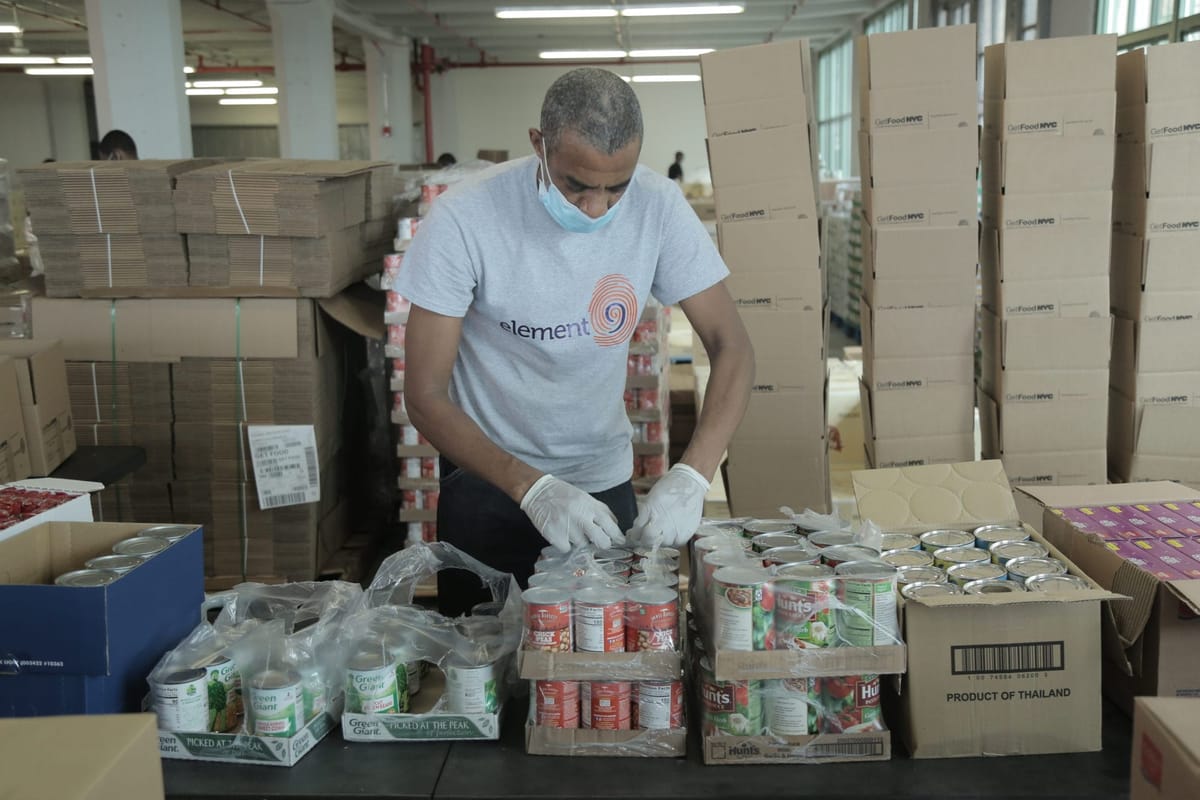
During the height of the pandemic, Tamecca Seril and her company, Element9 were distributing 54,000 meals a week, part of the Get Food NYC initiative to deliver shelf-stable foods like pasta, rice, canned fruits and veggies, and tuna to those in need.
Seril describes Element9 as a public innovation firm— a think and action tank that was established 20 years ago.
“Right now I would say we’re in an action moment because of COVID-19. We’re really concentrated on doing emergency food delivery,” Seril said.
Seril moved to Brooklyn in 1996, wanting to start a business, something that would allow her to spend more time with her son and be able to control her personal pursuits. After 9/11 happened, she saw “a tremendous need” for solutions that would work for government agencies and non-profits alike.
The first client Element9 ever took on was the New York Work Alliance, helping to build the Skills Exchange to help those who needed jobs as a direct result of the tragedy. They’ve also worked in wartime deployment doing packaging out of New York City, economic development, policy work, and community and workforce development.
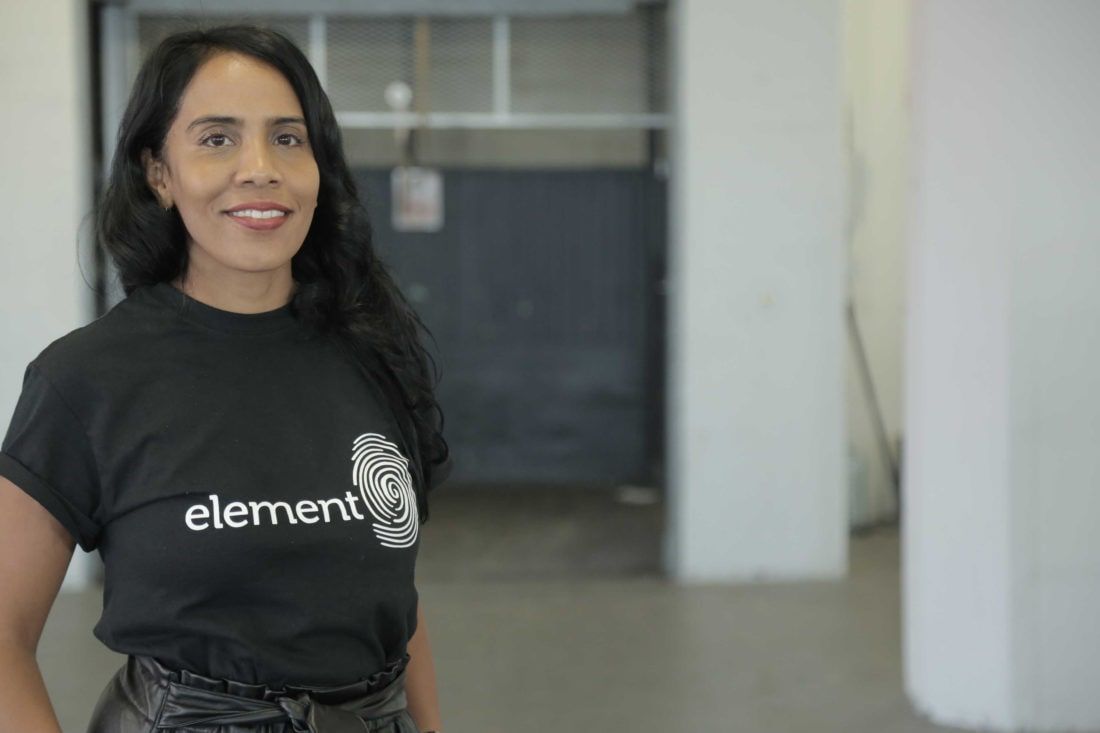
The firm, which is currently based out of Industry City, worked closely with the Taxi & Limousine Commission (TLC) to deliver the meals directly to people’s homes.
The city was not interested in Element9’s original pitch – a refrigerated locker where community members could pick up meals – so they put their efforts into emergency food delivery. Once they were accepted into the Get Food NYC initiative, the process moved quickly.
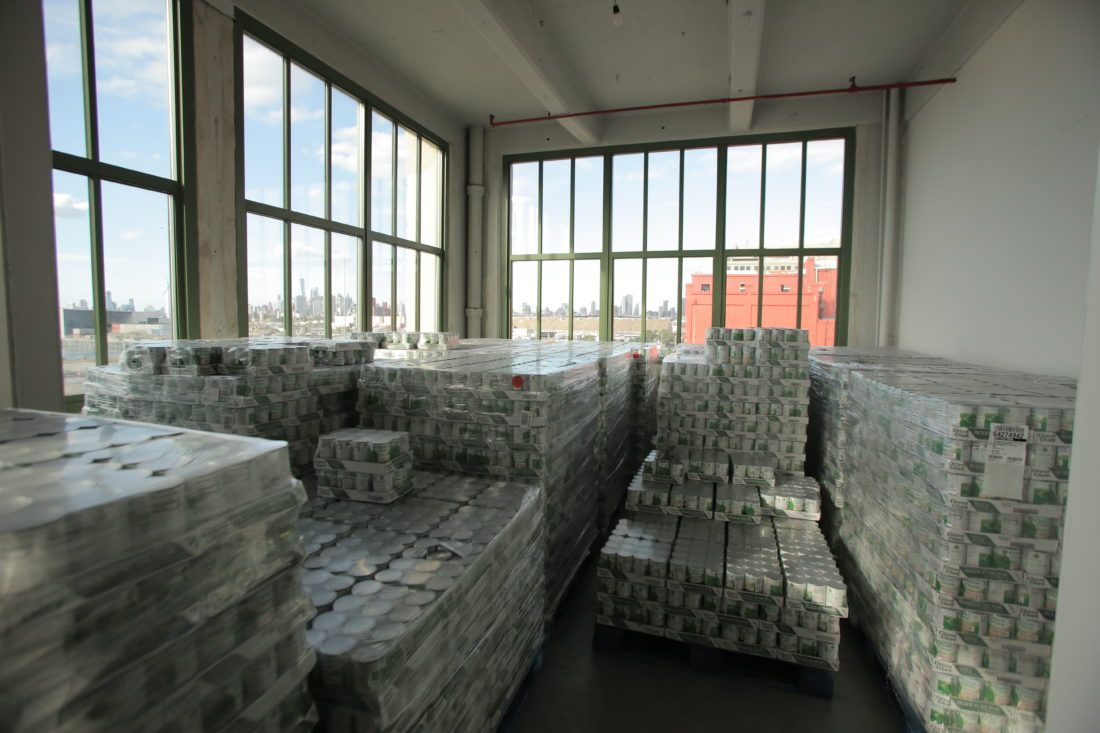
“We had five days to assemble a staff, get a space, procure the food, get supplies. We had to be really quick and nimble to make this work. Overall, we saw that this was going to be a really major growth area for our business, and we really wanted to focus on food. Food is one of these areas that creates jobs, it impacts the business industry as well,” Seril said. “This would give us an opportunity to employ people and work with fellow minority and women owned businesses.”
Seril hired hospitality industry workers that had lost their jobs as a direct result of the pandemic. All but one of her staff of ten are Brooklyn residents.
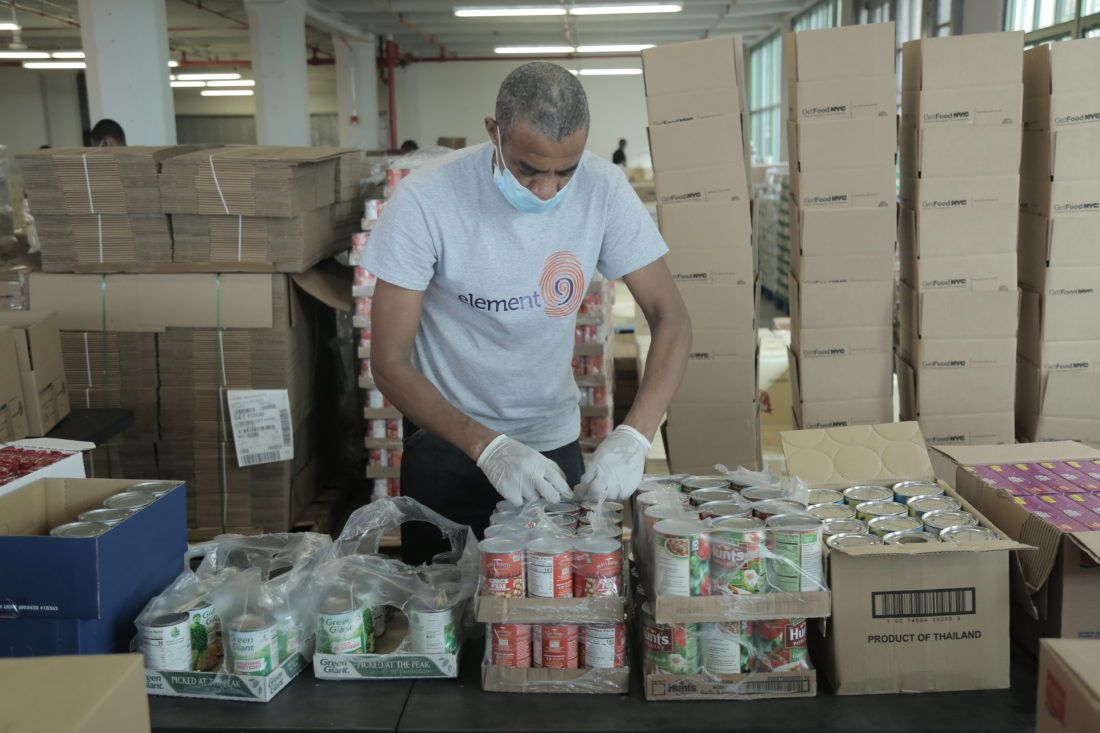
“We wanted to make sure that we had people who had familiarity and were conscientious about [the food industry],” Seril said.
While she expected the challenges of sourcing so much food and coordinating thousands of deliveries, finding space to operate out of in NYC was not easy.
“The part that doesn’t easily come together in a city like New York is the space,” she said, joking that several of the spaces she saw looked like the sewers out of “Ninja Turtles.” Industry City gave them everything they needed, including a flexible lease which they’ve had for several months now.
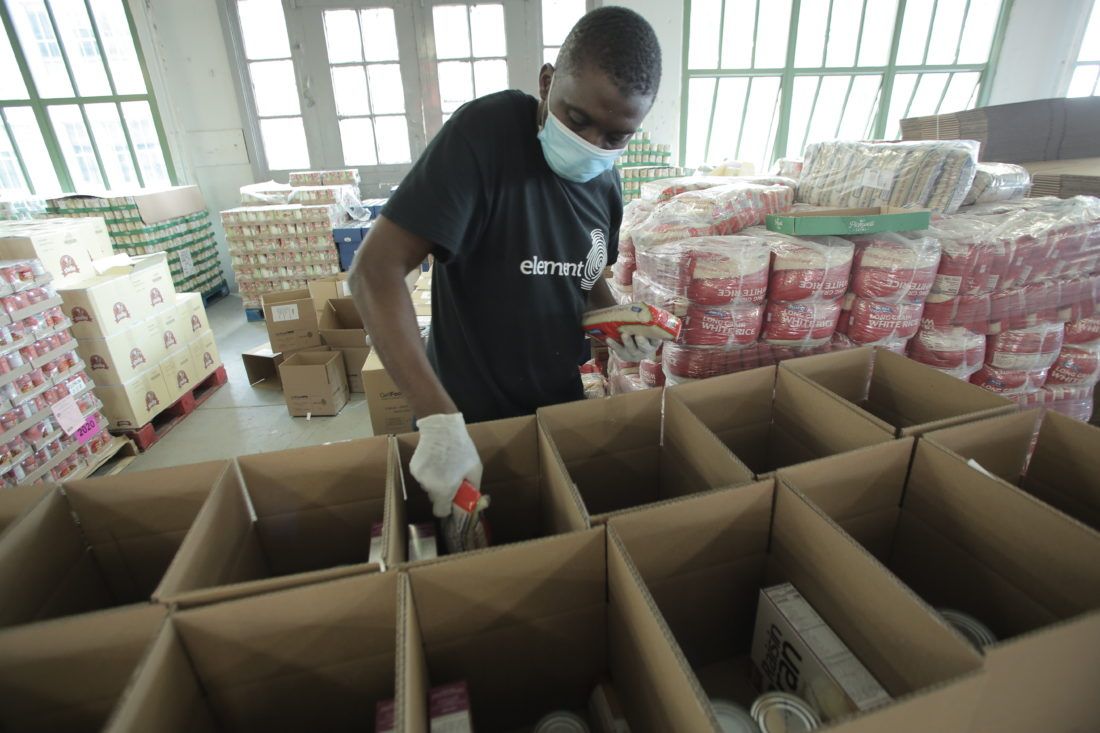
Over 800,000 deliveries have been made across Brooklyn since May, organized by Element9. Even though things are beginning to calm down slightly, Seril and Element9 are continuing their deliveries, now working with local organizations like churches and community groups to better facilitate deliveries.
“COVID-19 unearthed the inequalities of our food and health systems and the fragility of my community. New Yorkers don’t let New Yorkers go hungry,” Seril said. “As a Black woman, mother, business owner at Industry City and New Yorker it was imperative that our work at this time in history focus on how to reduce hardships faced by the most vulnerable populations.”



